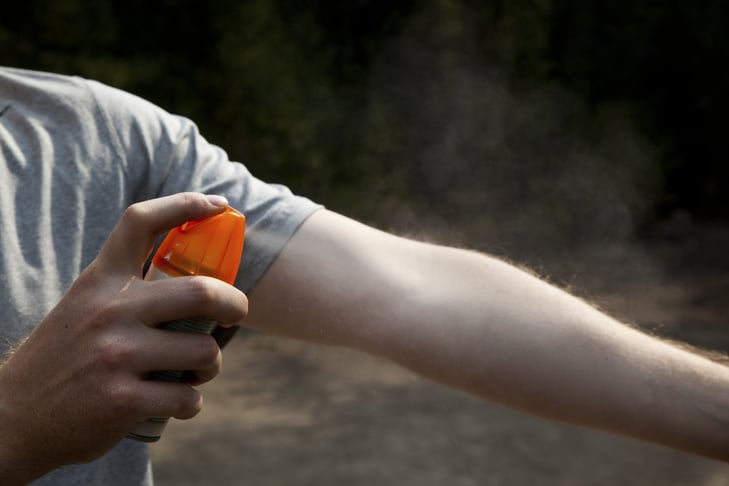Zika isn’t very dangerous to adults
The main concern about Zika is that it is suspected to cause birth defects to develop in unborn babies of infected mothers. One of those birth defects — microcephaly — involves major malformation of the head and brain, severe cognitive impairment and a decreased life expectancy.
But for adults, Zika is a rather mild tropical virus that usually doesn’t make people sick enough even to go to the hospital.
Symptoms of Zika include body aches (general malaise), headache, rash, joint pain, fever, and red, sore and/or itchy eyes (conjunctivitis). Unless an adult runs a high fever, there’s little danger. Best of all, even if you are exposed to Zika, you probably will never get it again. Most people who become infected develop a lifetime immunity to the pathogen.
So, unless you are a pregnant woman, exceedingly frail, or immunosuppressed, the current Zika epidemic is a bit of a tempest in a teacup.
Zika isn’t an airborne virus
You can’t catch Zika simply by being in proximity to an infected person. Feel free to go about your normal, daily routine.
Zika is a bloodborne pathogen. Like malaria, dengue fever, yellow fever, chikungunya, Ebola and other tropical illnesses, it’s transmitted primarily by mosquito bites. In fact, by a specific type of mosquito — A. aegypti — which has long maintained an invasive presence in the United States.
When a mosquito bites an infected person, it can transmit the virus to other, uninfected people it later bites. But the odds of this happening are slim here in Cincinnati.
In fact, the one recorded Zika case in the area did not originate from infection here in the Tristate; the man was likely bitten by an infected mosquito while he was travelling in a known endemic zone.
 Moreover, the danger of infection will subside with the first frost this fall, which will kill the majority of mature mosquitos in the area.
Moreover, the danger of infection will subside with the first frost this fall, which will kill the majority of mature mosquitos in the area.
The only other known route of transmission to date is intercourse. There is a small, but quantifiable risk that individuals who have unprotected intercourse with an infected male could themselves contract the virus.
To that end, sexually active adults who are not trying to conceive should always use prophylactics to prevent transmission. And that’s just good practice, Zika epidemic or no.
Take basic precautions against mosquitoes
If you go outside, wear a commercially available mosquito repellant spray containing the chemical DEET. The early morning and dusk — outside the heat of the day or the cool of night — are the two biggest danger times for mosquito bites, so if you are particularly concerned, stay indoors during those times.
But, if you are a senior who enjoys sitting outside on your porch or deck during the evening, try burning citronella candles. Set three or four of them in a close perimeter around where you will be sitting — they’ll act as a general repellant of nuisance insects. (And they smell good!)
Wear a fine-mesh hat, long sleeves and long pants in the evenings, or when you go near the woods, tall grass, or wetlands where mosquitos breed.
And make sure that you don’t allow any containers of standing water on your property — mosquito larvae may be living in them. Drain, then turn over empty flower pots and cans so they can’t refill when it rains.
If you have a swimming pool, make sure that you are properly treating it with chlorine to kill germs and mosquito larvae. Or, if your property includes a fountain, pond or lake, consider installing a recirculating pump, which breaks the water’s surface tension and discourages mosquitoes from landing on it to lay eggs.
And avoid killing spiders you find in your house or in your garden. Spiders (especially large orb weavers) eat a large volume of nuisance insects. They can help you to keep the mosquitoes at bay. If you find a spider in your home, trap it under a glass, slide a piece of paper under it, and relocate it outside.
Or, consider building bat houses and installing them around your property. Bats’ primary diet includes mosquitoes. A single, common brown bat can eat up to 1,000 mosquitoes every hour!
Most people that develop a Zika infection don’t even know they have it. For the few who do, symptoms are typically mild.
But there are much more dangerous diseases that mosquitoes can spread. For seniors living in the Ohio Valley during the summer, it’s always best to take precautions to avoid getting bitten.













